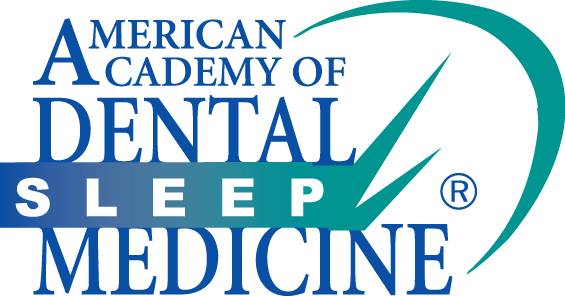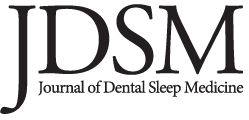
Editorial 1, Issue 10.2
Could CPAP be Good for Sleep and Bad for the Heart?
http://dx.doi.org/10.15331/jdsm.7274
Jean-François Masse, DMD, MSc, FACD, Diplomate, ABDSM
Editor-in-Chief Journal of Dental Sleep Medicine
Universite Laval, Quebec City, Quebec, Canada
Any clinician knows from experience that many patients using continuous positive airway pressure (CPAP) treatment see real improvements in their sleep and a reduction in their daytime fatigue. We also know that many oral appliance (OA) users enjoy improvements in quality of life as well.1 However, as of late, cardiovascular improvements have been called into question.2
An important report recently published findings that CPAP has no effect on cardiovascular health.3 A prominent group of sleep specialists hypothesized that the lack of improvement could be related to poor case selection (giving CPAP to almost everyone) or patients not being compliant with therapy and wearing the CPAP for insufficient hours each night,4 since the average user could wear the CPAP only 3.3 hours per night.2
Is it possible that CPAP use not only has little positive effect on cardiovascular health but might also be detrimental to it?
This seems to be the case in a recently published study conducted by Columbia University5 - The authors found that CPAP increased levels of angioprotein-2, a protein associated with inflammation and heart disease. The researchers also found out that the use of statins (Atorvastatin) lowered the levels of the protein, while CPAP did not. The authors recommended that future researchers look into lowering CPAP pressure or treating OSA with an OA to see if the results could be better. Many considerations arise from the results of this paper.
First, should we now treat OSA patients with statins? Only 8 to 13% of OSA patients use statins.5 This brings to the surface other sub-questions: Although there are several clinical trials occurring now for pharmaceutical treatments to specifically help sleep apnea, can existing pharmaceuticals have a greater impact on the cardiovascular health of patients with OSA? This could provoke a major shift in the key players in OSA treatment. Now that Atorvastatin is available as a low-cost generic drug, what is to be expected in terms of research and support by the pharmaceutical companies?
Second, are OAs any better than CPAP in regards to inflammation control? The only paper evaluating inflammation markers and OAs reported that after 6 months of OA use, there was an improvement in inflammatory profile and homeostatic markers,6 becoming comparable to controls. A very interesting finding indeed despite the fact that researchers did not test angioprotein-2.
Finally, if we want to test the CPAP at lower pressures, the use of combined treatment may be the way to go. As El-Solh reported in 2011,7 combined treatment reduces the pressure needed by the CPAP by 28% on average. Another recently published study found that improvements in blood pressure mostly occur when the CPAP was worn during REM sleep.8 Considering that patients wear their CPAP 3.3 hours per night,2 on average, and that most REM sleep occurs later in the night, it is easy to see why patients may benefit from combined treatment. The El-Sohl pilot study also found that every non-compliant CPAP patient in the study became CPAP compliant when using both devices.
Does this mean we should conduct more studies combining CPAP and OAs? Considering the results of the CHOICE study,9 where the best results were seen when a patient would use both devices, this may be a step in the right direction that could lead to both improved cardiovascular outcomes and quality of life.
Of course, we need a great deal more research before making a final decision, but we are gearing towards a scenario where the OA, if used as part of a hybrid therapy when indicated, could become the treatment of choice for OSA - period.
REFERENCES
- Rangarajan H, Padmanabhan S, Ranganathan S, Kailasam V. Impact of oral appliance therapy on quality of life (QoL) in patients with obstructive sleep apnea - a systematic review and meta-analysis. Sleep Breath. 2022 ;26(3):983-996.
- McEvoy RD, Antic NA, Heeley E, et al. CPAP for prevention of cardiovascular events in obstructive sleep apnea. N Engl J Med. 2016;375(10):919-31.
- Draft technology assessment: Continuous positive airway pressure treatment for obstructive sleep apnea. Agency for Healthcare Research and Quality. Accessed April 6, 2021. https://www.ahrq.gov/sites/default/files/wysiwyg/research/findings/ta/drafts-for-review/sleep-apnea-draftreport.pdf
- Associated Professional Sleep Societies. Long-term Outcomes Research in OSA Discussion | Virtual SLEEP 2021 [Video]. YouTube. https://www.youtube.com/watch?v=g1HK69tmskE. Published June 16, 2021. Accessed April 6, 2023.
- Shah R, Patel N, Emin M, et al. Statins restore endothelial protection against complement activity in obstructive sleep apnea: A randomized trial. Ann Am Thorac Soc. 2023.
- Niżankowska-Jdrzejczyk A, Almeida FR, Lowe AA, et al. Modulation of inflammatory and hemostatic markers in obstructive sleep apnea patients treated with mandibular advancement splints: a parallel, controlled trial. J Clin Sleep Med. 2014;10(3):255-62.
- El-Solh AA, Moitheennazima B, Akinnusi ME, Churder PM, Lafornara AM. Combined oral appliance and positive airway pressure therapy for obstructive sleep apnea: a pilot study. Sleep Breath. 2011;15(2):203-8.
- Falla C, Young A, Pope A, O'Driscoll DM. Obstructive sleep apnea during REM sleep: effects on morning and evening blood pressure. Sleep. 2023;46(3):zsac259.
- Almeida F. CHOICE trial. Presented at: 30th American Academy of Dental Sleep Medicine Annual Meeting; May 13-15; Dallas, TX.
CITATION
Masse, JF. Could CPAP be good for sleep and bad for the heart?. J Dent Sleep Med. 2023;10(1)SUBMISSION AND CORRESPONDENCE INFORMATION
Submitted in final revised form January 2, 2023.
Address correspondence to: Jean-François Masse, DDS, MSc, FACD, D.ABDSM, Professor, Universite Laval, 2780 Masson #200, Quebec City, QC, G1P 1J6, Canada; Tel: 418871-1447; Fax: 418-871-4983; Email: jean-francois.masse@fmd.ulaval.ca
